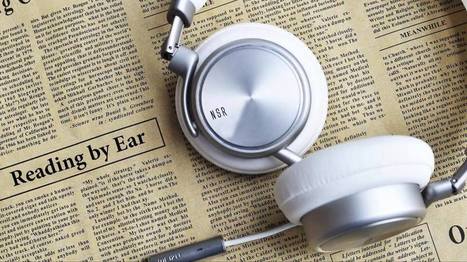Factitious is a game for testing your skill at identifying fake and misleading news stories. The game was developed by the American University Game Lab and the American University's School of Communication.
Research and publish the best content.
Get Started for FREE
Sign up with Facebook Sign up with X
I don't have a Facebook or a X account
Already have an account: Login
Literacy in a digital education world and peripheral issues.
Curated by
Elizabeth E Charles
 Your new post is loading... Your new post is loading...
 Your new post is loading... Your new post is loading...
|

Samuel Johnson-Taylor's curator insight,
September 16, 2018 11:50 AM
Reading by ear is the present and future I agree with these because I do it now. In my eyes its well worth it and I get a better understanding on the topics I am listening too. I really to visualize while im listening its like watching a movie in your brain.
|














